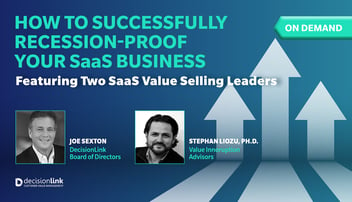Back to Reality 2.0

We have been here before. And multiple times over the last 20 years. Bubbles are formed, grow too fast, and then burst. Stock valuations go through the roof. Capital is chasing ideas and new business models giving exuberant level of investments without doing the proper due diligence on the attractiveness of the business models. The so-called “unicorns” were born because two people with a cool concept, a nice PowerPoint slide deck, and a Beta platform environment were able to convince VC and angels investors to invest in them. This was a start-up bonanza we had not seen since 2000.
"Yes, but this is actually a good thing (a potential recession)," says Elon Musk, CEO of Tesla. "It has been raining money on fools for too long. Some bankruptcies need to happen.” [1]
Well, the party is over. For some the hangover is brutal. Valuations are down by up to 80%. Announcements of layoffs are falling like an Arizona monsoon. VCs and investors are now asking for some type of return and for faster profitability. Forget about unicorn status, the rule of 40, and irrational growth. Investors want profit and sustainable business models. In other words, it is time to get back to reality. The stock market casino is closed [2]. As a result, the startup layoffs have started. In May, 15,000 layoffs were announced in tech companies [3] and it is going to accelerate as companies move to protect their cash positions. [4] At the same, VC funds are putting the break on investments in areas that are currently collapsing [5]. Fintech and crypto investments are the hardest hit areas.
What does this new recession and wave of financial conservatism mean for nascent and growing SaaS companies and other start-ups? CEOs, CROs, and CFOs need to go back to fundamentals. It is time to slow down, reinforce the core business models, and to demonstrate the resilience of the value proposition. I propose five concepts to start implementing right away:
- Validate your customer value proposition: When was the last time you spoke with customers about the state of your value proposition? Hold focus groups or launch a customer insight effort. You will quickly find out what customers think about your position, their willingness to pay for your products and/or features, and their propensity to churn or renew. This can be done in days rather than months. Build value maps with the results of these insights and map the relationship between price and value.
- Dig deep into your monetization potential: Are you really leveraging your entire portfolio of products, features, and add-ons? Are you giving away too much for free? Are you limited by your current billing system and not able to fully monetize your benefits? These are questions to answer in a matter of two weeks. If you do not know how to do this, bring an expert in. Tie your customer insight program to this effort. Discontinue things that do not bring in value and reinforce those that do bring customer benefits.
- Restructure your marketing spendings: Discontinue your marketing programs that are vanilla, boring, and do not bring value. Discontinue using the multiple sales and marketing apps that distract your marketers and sellers to focus on customer pains and benefits. Take the money you save and invest in innovation and new value-added programs. Right now, it is all about customer value and customer success. The rest is nice-to-have. Take the next two weeks to do this analysis and make strategic changes.
- Invest in customer value management (CVM): This is a must-do in these times of disruption, volatility, and recession. Invest in a CVM platform that can automate and bring power to the rest of your go-to-market engine. Focus all your attention on customer economic impact. That is what they will need to hear when they make their decisions to cut you off or renew. All start-ups are cutting costs. Make sure you stay top of mind and part of the left-over wallet. This is priority number one for the next 45 days. DecisionLink, for example, can get you up and running within 60 days.
- Refresh your pricing approach: Based on the work in points 1, 2, and 4, it is time to revisit your pricing strategy, your product versioning and packaging, and your pricing structure. Use the input from all the quick research you are doing as well as from the feedback from your sales and customer success teams. Make bold moves to disrupt your competitors and to proactively surprise your customers with better value for better pricing. This is a 30-day exercise.
Brace yourselves for an economic hurricane. Don’t just take my word for it - Jamie Dimon, CEO of JP Morgan Chase has been at the forefront recently in discussing this topic and how to prepare and ultimately, overcome it [6]. The next wave of disruption is coming. Your board and investors are switching their focus to sustainability, cash protection, and profitable growth. Get started today. Within 45 days, you will see your efforts to lessen the effects of the recession come to fruition positively. Self-disruption is better than being disrupted outside of your control!
To learn more about Customer Value Management and how it can stabilize your company during the economic recession, download this report.
Bio

Dr. Stephan Liozu (www.stephanliozu.com) is the Founder of Value Innoruption Advisors (www.valueinnoruption.com), a consulting boutique specializing in industrial pricing, digital business, and value models, and value-based pricing. Stephan has 30 years of experience in the industrial and manufacturing sectors with companies like Owens Corning, Saint-Gobain, Freudenberg, and Thales. He holds a Ph.D. In Management from Case Western Reserve University, and has written several books, including “Dollarizing Differentiation Value” (2016) and “Value Mindset” (2017).
1] Elon Musk says upcoming recession is 'actually a good thing,' and predicts how long it will last | Fox Business
[2] The stock market 'casino' is closed - CNN
[3] https://www.linkedin.com/pulse/startup-layoffs-have-started-michael-spencer/
[4] https://www.wired.com/story/startups-layoffs-economy-bad-times/
[5] Venture Capital investments in crypto set for 50% reduction in 2022 (crypto-news-flash.com)
[6] Brace yourselves for an economic 'hurricane,' Jamie Dimon says - CNN

 ValueCloud
ValueCloud
.png?width=118&height=76&name=Rectangle%20(3).png) ValueCloud Ignite
ValueCloud Ignite
.png?width=92&height=92&name=Rectangle%20(4).png) Free Assessment
Free Assessment
.png?width=100&height=100&name=Rectangle%20(5).png) Watch a Demo
Watch a Demo
.png?width=82&height=96&name=Rectangle%20(6).png) Value Calculator
Value Calculator

.png?width=62&height=51&name=Group%2010%20(1).png) Marketing
Marketing
 Sales
Sales
 Customer Success
Customer Success
 Engage Prospects
Engage Prospects
 Win Deals Faster
Win Deals Faster
 Retain Customers
Retain Customers
.png?width=62&height=62&name=Rectangle%20(8).png) Adopt and Scale
Adopt and Scale
.png?width=54&height=54&name=Rectangle%20(9).png) Cybersecurity
Cybersecurity
 Healthcare
Healthcare
.png?width=54&height=54&name=Rectangle%20(10).png) IT & Software
IT & Software




